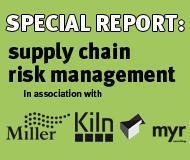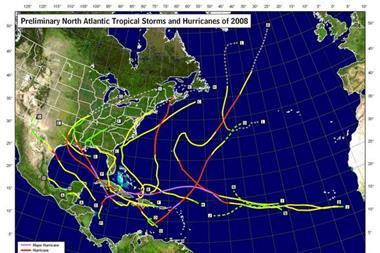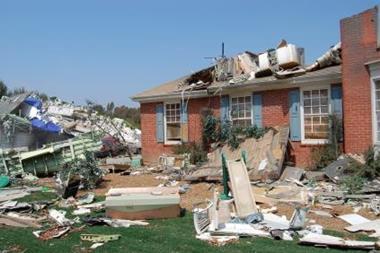Alex Kiffen reports on a recent round table discussion on how to deal with catastrophe and how to prevent it
How do we become better at delivering restoration services after a catastrophe? How can we prevent catastrophes from happening? Is there value in adopting a policy of prevention rather than cure?
These questions were addressed at a recent round table discussion organised by Munters MCS, with insurance, loss adjusting and risk management professionals from different countries. Participants provided a valuable perspective on how all those involved in a catastrophe might collaborate to enhance final outcomes.
On the question of whether governments should be more active in responding to a catastrophe, it was felt that a centralised response team automatically dispatched to affected areas would not only offer a more timely response, but would also provide a better coordination process between all groups involved. Having a single team to manage the catastrophe would make it easier to communicate directly with affected individuals, enable regular progress updates, improve overall image and provide a benchmark for future improvement.
The next topic for discussion was the adoption of a more consolidated approach between UK insurance companies and the Association of British Insurers (ABI) to encourage mitigation rather than competition. Adopting such an approach would enable the industry to provide individuals with more concise policies, so that they could clearly identify what they were getting for their money. This would not only aid comparison of initial policy quotes, but would assist in managing service level expectations during a flood.
Other suggestions included a government policy to address uninsured properties and a level of commitment from insurers to make coverage affordable following a flood. The French model was cited as a potential way forward, whereby all flood restoration is funded through the government. Another suggestion was to make it a legal requirement for all homes and companies within flood prone areas to have a basic level of flood insurance. Participants concluded that certain stipulations and more acceptance of responsibilities are required across the industry.
The second session primarily focused on prevention. It was felt there was a need to raise awareness among insurers, suppliers and the public, so that all fully understand the level of risk. A national campaign could emphasise what preventative measures can be taken against flooding. This could be supported through the introduction of a domestic disaster recovery programme, which would assist with the exchange of information and knowledge transfer.
Other areas discussed were the introduction of legal requirements on minimal measures to be taken against flooding. In order for such a scheme to work nationally, this should be a co-ordinated approach by the whole industry, as opposed to individual companies introducing their own incentives for reducing premiums. Other measures could include the introduction of minimum anti-flood requirements in all new builds, enforced by a refusal of planning permission if such preventative methods were not incorporated.
The group considered that actively lobbying government could encourage the introduction of a code of conduct and an active drive to change building regulations. In turn this would create a better understanding of measures that can be introduced to prevent future flooding.
“Proactive measures could include the introduction of minimum flood requirements within all new builds.
The industry needs to actively lobby for infrastructure improvements, like the Thames Flood Barrier and to encourage quick effective solutions that are already in use in some parts of Europe. One example is the aquatube – a temporary barrier that is erected as soon as a flood warning is given. Introducing a statutory pool of money and the investment of VAT accumulated from previous floods to pay for flood defences would make solutions more viable.
The group advocated creating a list of lessons learned, drawing on recent incidents and sharing individual experience and alternative protection techniques. This would provide the opportunity to share techniques and trends and produce tracking, using methods such as GPS to underwrite policies. These methods would also aid identification when processes are not being followed, encourage the industry to become more proactive rather than reacting once a flood has happened, and also provide useful data for mitigation. In areas prone to flooding, area risk assessments should be undertaken rather than expecting individuals to take responsibility.
Overall the group concluded that the following key points need to be addressed:
• a combined wisdom of lessons learned
• more emphasis on a duty of care to undertake a certain level of mitigation
• a more coordinated approach by UK insurers to work with ABI to share information and drive change.
Being able to unite a variety of contributors from around the globe and address specific concerns about catastrophes and prevention, demonstrates the significance and priority that the industry places on these subjects. Overall the event provided a stimulating session and an opening platform to influence change.
Postscript
Alex Kiffen is global vice president of sales and marketing, Munters MCS



















No comments yet